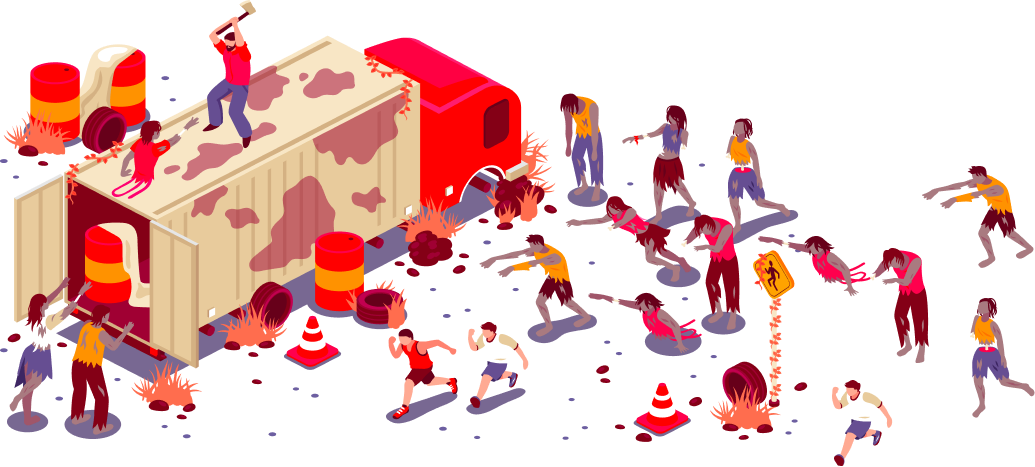The best city in case of a zombie apocalypse
Which of the Australian biggest cities is best suited for survival in the world of the walking dead?
Find outIntroduction
The world has had enough problems in recent years. Covid, wars across all over the world, economic and social changes in society - all this has changed and continues to change the landscape of the rental real estate and real estate in general. We at Rentola like to find and analyze these changes and present them in the most convenient and understandable format - in the tops. This time we decided to invent a problem. What if the world is taken over by a new epidemic that turns people into zombies? What if a new war breaks out, a war between the living and the dead? And where, in Australia, will it be most likely to survive? We created 5 groups of data (Vulnerability, Hideouts, Supplies, Safety, Mobility), analyzed each of them, and found the best australian city based on the average of the 5 groups. So, if you're not lucky enough to live in the safest city or state in the event of a global zombie apocalypse, we suggest you to fix that by using our site to find accommodation in a right place.

5 groups of data
We have created 5 categories of data (Vulnerability, Hideouts, Supplies, Safety, Mobility) and analysed each of them, and found the safest Australian city based on the score in each of the 5 categories. So, if you're not lucky enough to live in the safest city in the event of a global zombie apocalypse, you might have to consider relocating!
-

Vulnerability
Indicators: Population density Index, death rate index, disability index, long-term health conditions, etcCertain places are simply created for epidemics and their rapid spread. Think back to the past few years. The huge population density, the influx of tourists, the percentage of chronic diseases among the population and even the disaster risk index, yes, we used all this to calculate which of the provinces is most vulnerable in the face of the wave of the dead.
-

Hideouts
Indicators: Appropriately sized housing index; total dwelling units, separate house, etcApocalypse isn't just about astronauts flying on a heroic mission to destroy an asteroid heading toward Earth, it's often a game of hide and seek. Therefore, it is important to find the best, most protected, or remote place to save your life and grow potatoes. This index shows how many hiding places there are in the region.
-

Supplies
Indicators: Agricultural commodities, agriculture, forestry and fishing index, accommodation and food service activities, etcYes, you'll need a lot of things: food, fuel, tools, weapons, clothing, medicine, and maybe even pet fish. So it is better to have all these shops nearby so that you can borrow goods from them as soon as possible. (But you will have to give it back later!)
-

Mobility
Indicators: Road safety, camper-vans, number of motor vehicles per household, etcIt may also be that you will have to travel a lot in search of survivors, provisions, or a better fate. Therefore, it is important that transport is your friend, and mobility is your best ally.
-

Safety
Indicators: Crime index, number of people who served in forces, etcSpeaking of weapons and self-defense tools. We looked at who has the most weapons, specialized stores, and military bases. So now we know who is most likely to have a zombie roast.

Data/
Metho
dology
All data has been collected and processed from the Australian Bureau of Statistics. The latest data available has been used for each datasource. Min-max normalization has been used to index the data sources in question. This method of indexing allows us to convert any kind of data to a value between 1-10, where 1 represents the lowest / worst value and 10 the highest / best value within the categories in question. This means that the higher a score an area achieves, the better it is relative to the others. To ensure a precise and representative result as possible, all departments missing more than two data sources have been removed from the Quality Index

